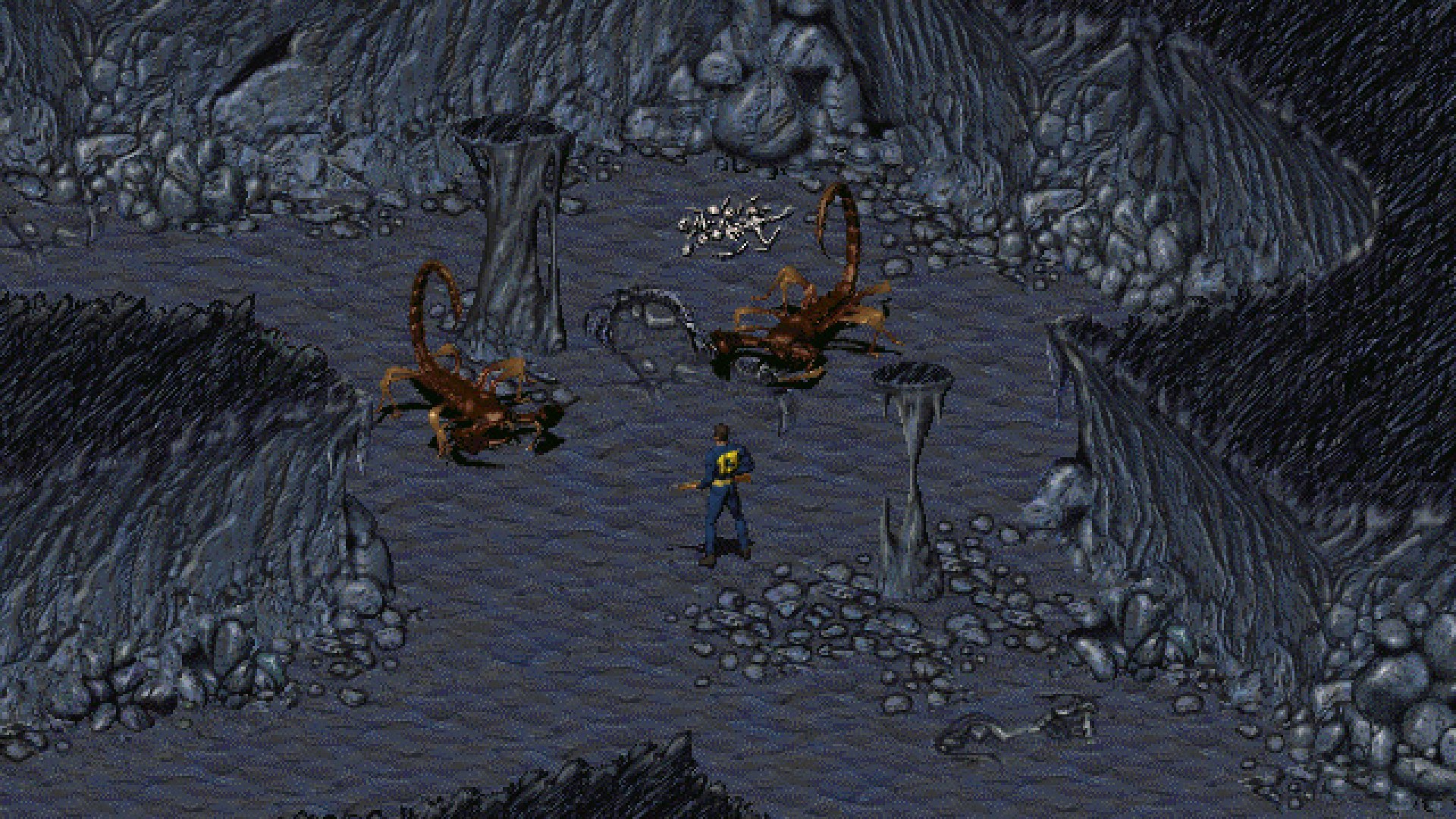Fallout creator says the team was unsure about adding one gameplay system that's now a key strategy in all your favorite RPGs
You've got to reverse-pick a pocket or two, but Interplay nearly didn't

Tim Cain, one of the developers behind the original Fallout game, was once not too sure about its reverse-pickpocketing system.
It's something we might take for granted now in the likes of Baldur's Gate 3 – RIP to the funniest reverse-pickpocketing exploit ever – but the notion of slipping items into an NPC's inventory came around almost by accident in the first Fallout entry.
"It used the same interface as barter," Cain told Rock Paper Shotgun of his experience coding the system back in the 90s, "So because of that, automatically, it let you put things in." Tim goes on to describe that one such thing that Bethesda's QA team really liked to reverse-pickpocket were bunches of dynamite.
At first, Cain and his fellow devs were a little concerned about this system. It no doubt enables a slightly more, uh, violent approach to things, after all. "But then we were like, 'This is fun. It’s an emergent property, why not? Why can’t you set the timer for 60 seconds, stick it in someone’s backpack and sneak away?'"
The interview goes on to explain how developer Interplay would go on to write a mission to put this new function to the test. In it, the player is tasked with surreptitiously planting a wire on a casino manager to spy on him later, showing that reverse-pickpocketing can be useful for more than just making poor NPCs go pop.
This discovery is just one of a fair few that spurred Cain on to create a living, responsive environment that is shaped by each individual player. "I didn't want a lot of things to be scripted," Cain said. "I didn’t want it to be the same experience for everyone. In order to do that, we had to just make rules, and then let the rules go wherever they go. Not hard-code it."
The original Fallout launched back in 1997, but we've seen a great many more reactive open worlds and branching, player-influenced storylines peppered throughout many of the best RPGs across the years since. It's always good to remember our roots through, so next time you commit atrocities against NPCs by reverse-pickpocketing them with horrors like the Victoria-bomb, just remember to thank Tim Cain and Interplay for being among the first to pioneer it.
Sign up to the GamesRadar+ Newsletter
Weekly digests, tales from the communities you love, and more
Fallout 5 is one of many upcoming Bethesda games currently in development.

Jasmine is a staff writer at GamesRadar+. Raised in Hong Kong and having graduated with an English Literature degree from Queen Mary, University of London in 2017, her passion for entertainment writing has taken her from reviewing underground concerts to blogging about the intersection between horror movies and browser games. Having made the career jump from TV broadcast operations to video games journalism during the pandemic, she cut her teeth as a freelance writer with TheGamer, Gamezo, and Tech Radar Gaming before accepting a full-time role here at GamesRadar. Whether Jasmine is researching the latest in gaming litigation for a news piece, writing how-to guides for The Sims 4, or extolling the necessity of a Resident Evil: CODE Veronica remake, you'll probably find her listening to metalcore at the same time.


